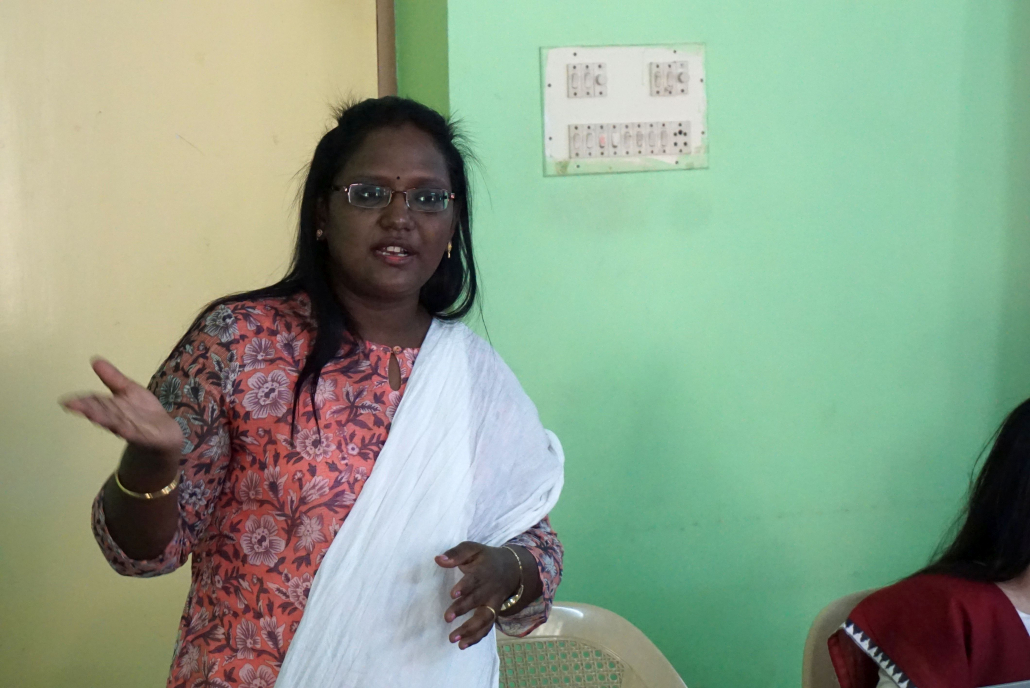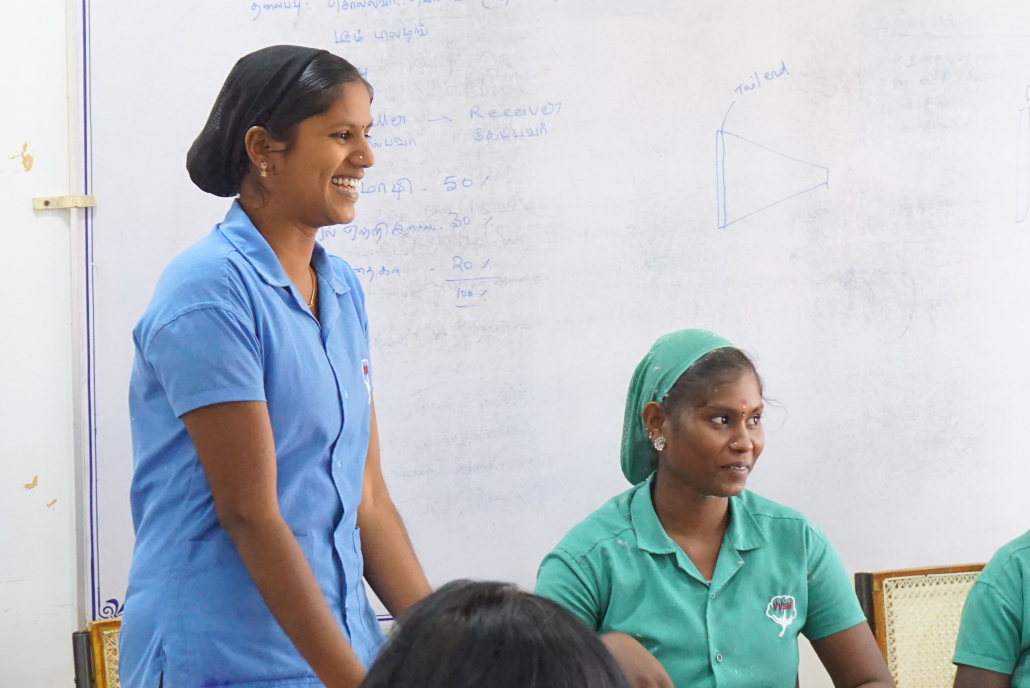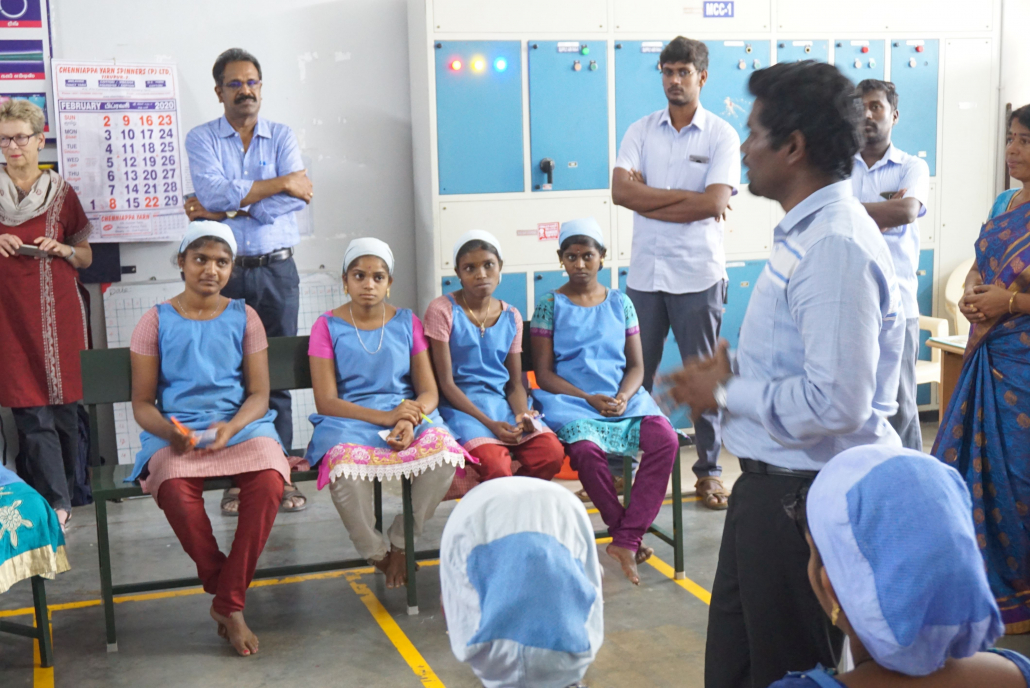Second Annual Conference of the MSI-TN
Second Annual Conference of the MSI-TN
The Multi-Stakeholder Initiative Tamil Nadu (MSI-TN) is making progress – this became visible at the Second International Annual Conference. About 140 participants attended the conference on 6th February 2020 in Coimbatore, which was supported by the Partnership Initiative Tamil Nadu.
The training and dialogue formats of the MSI-TN are accepted and appreciated by local and international stakeholders. In comparison to the conference last year it was shown that trust has grown, and the cooperation of all members becomes more and more routine.
The Partnership Initiative pursues long-term systemic improvements in working conditions, especially for young women in the textile and garment industry in Tamil Nadu, with a special focus on spinning mills. HUGO BOSS, KiK, Otto Group, Tchibo, FEMNET, the BMZ, TransFair and Brands Fashion are working together in Tamil Nadu.
Representatives of the Partnership Initiative from Germany and Bangladesh travelled to the conference. The delegation met different stakeholders of the South Indian textile industry, visited two spinning mills and had an exchange with local partners at the conference.
Part of the delegation has been Gisela Burckhardt (FEMNET), Rapha Breyer & Claudia Brück (TransFair), Patric Hehemann (BMZ), Hossain Manzoor Kashfin (KiK), Felix Rauer (Otto Group), Rabea Schafrick (Brands Fashion) and representatives from the Partnership Secretariat.
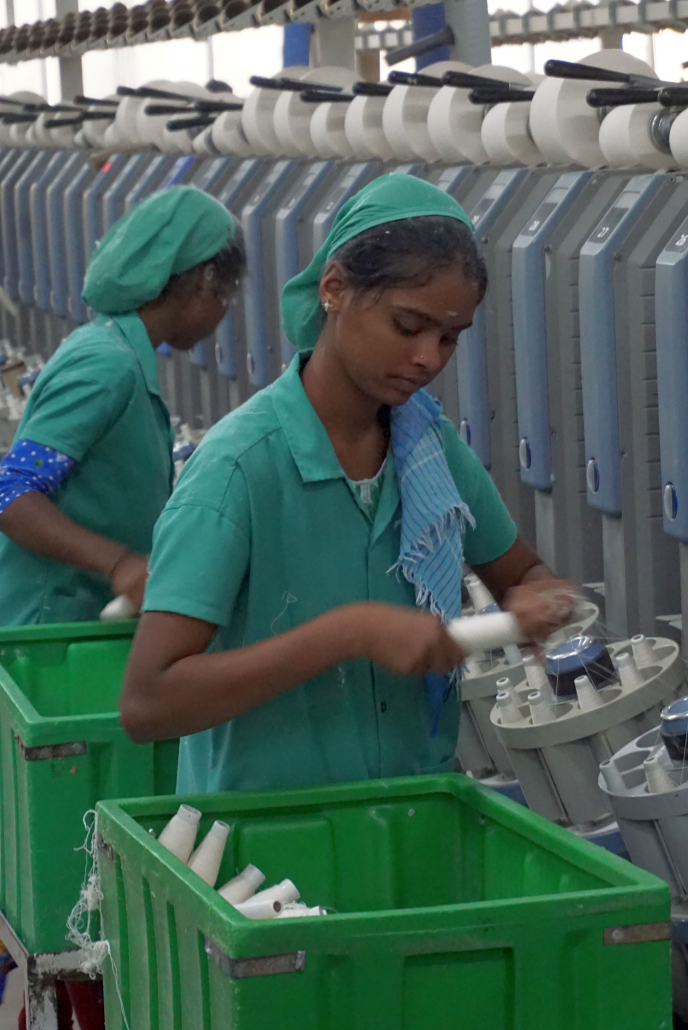
One of the key objectives of the MSI-TN was the inspiration for this year’s conference theme: „Partnering for Sustainable Growth“. Right at the beginning Mr Aloysius, Convener of the MSI-TN pointed out: “Change is possible and happening”.
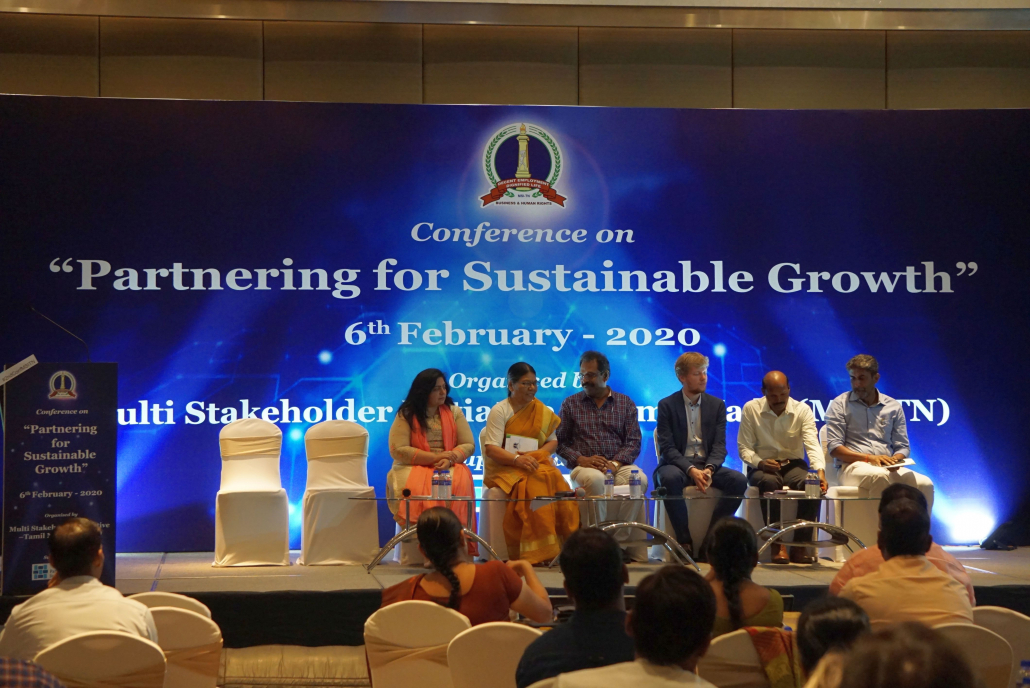
In Coimbatore all stakeholders have met: political and business representatives (especially from spinning mills in Tamil Nadu), also members from NGOs, labour unions, trade unions and (inter)national organisations. All of them described their perspectives and expectations to the Multi-Stakeholder Partnerships.
Mr Narayanasamy, General Manager of Armstrong Spinning Mills, spoke about his motivation for attending the conference: “With Armstrong, we started very early on the path to sustainable improvements in working conditions. But still, we are learning. Today I joined the conference to hear what else we can do.”
Moreover, Dr. K. Venkatachalam, Chief Advisor of Tamil Nadu Spinning Mills Association (TASMA) acknowledged the hosts: “The MSI-TN is doing a wonderful job. I hope it will expand continuously and reach more and more people.”
In the afternoon, the annual action plans of the MSI-TN in the four production districts of Erode, Tirupur, Dindigul and Coimbatore were the focus of attention. The key topics were:
- Prevention & redressal of harassment of women at workplace
- Better living conditions in working women hostels
- Social security and statutory benefits for workers
- Labour laws supporting sustainable growth
After representatives from international organizations, trade unions, NGOs and the MSI-TN steering committee had commented on the action plans, the conference participants gathered in four working groups to discuss and fine-tune the action plans for their district.
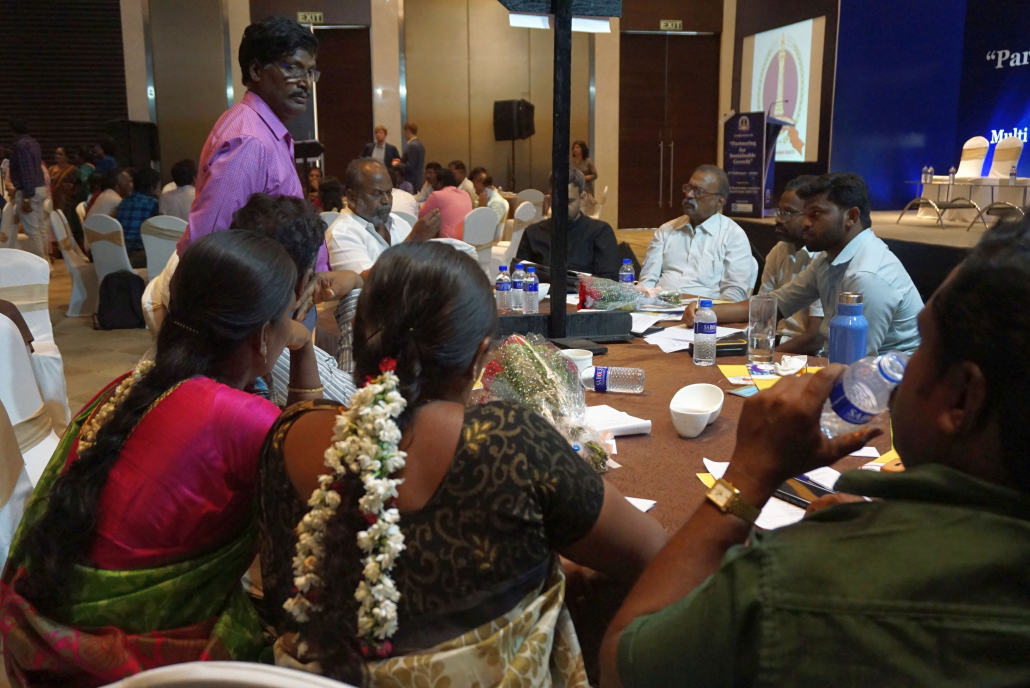
On behalf of the members of the Partnership Initiative Patric Hehemann, Felix Rauer, Hossain Manzoor Kashfin and Gisela Burckhardt presented current developments in Germany and the cooperation with the MSI-TN. Rauer emphasized that in the face of climate change, excessive use of resources and inhumane working conditions in some contries, cooperation is "what we need to move together towards the future. And by collaborating we can bring this initiative [MSI-TN] with its dialogue and training to another level".
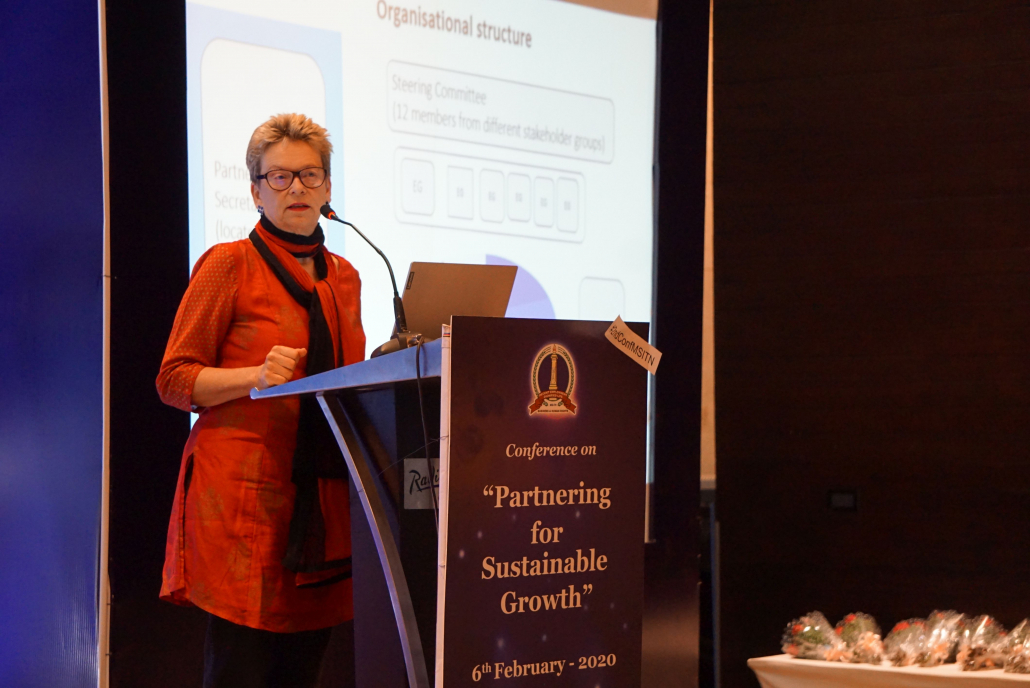
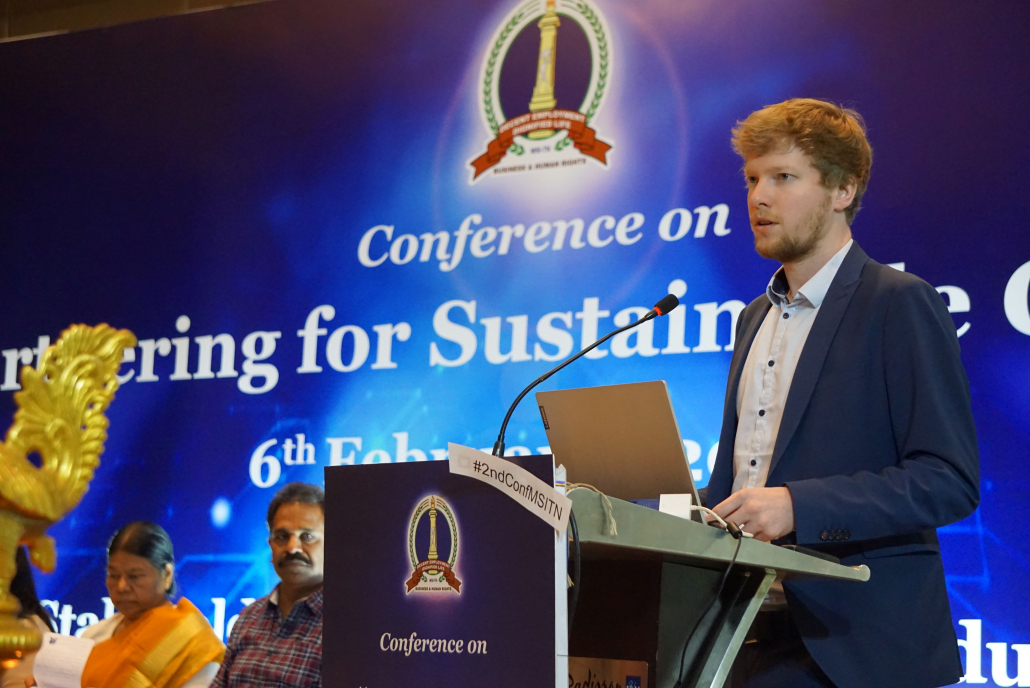
In addition to the conference, the delegation also had meetings with political stakeholders on the agenda. The German Consul General in Tamil Nadu Karin Stoll received the delegation in her office in Chennai. She supports the Partnership Initiative with her contacts to the Tamil Nadu government in order to further establish the MSI-TN and support in its implementation.
In the afternoon, the Consul General accompanied the Textiles Partnership delegation to meetings with government representatives of the State of Tamil Nadu. The additional chief Secretary of the "Labour and Employment Department" Shri. Thiru Md. Nasimuddin focused the discussion on the social and ecological challenges in the textile sector in Tamil Nadu.
One positive aspect, he said, was that inspections of factories were increasingly being carried out without prior notice.
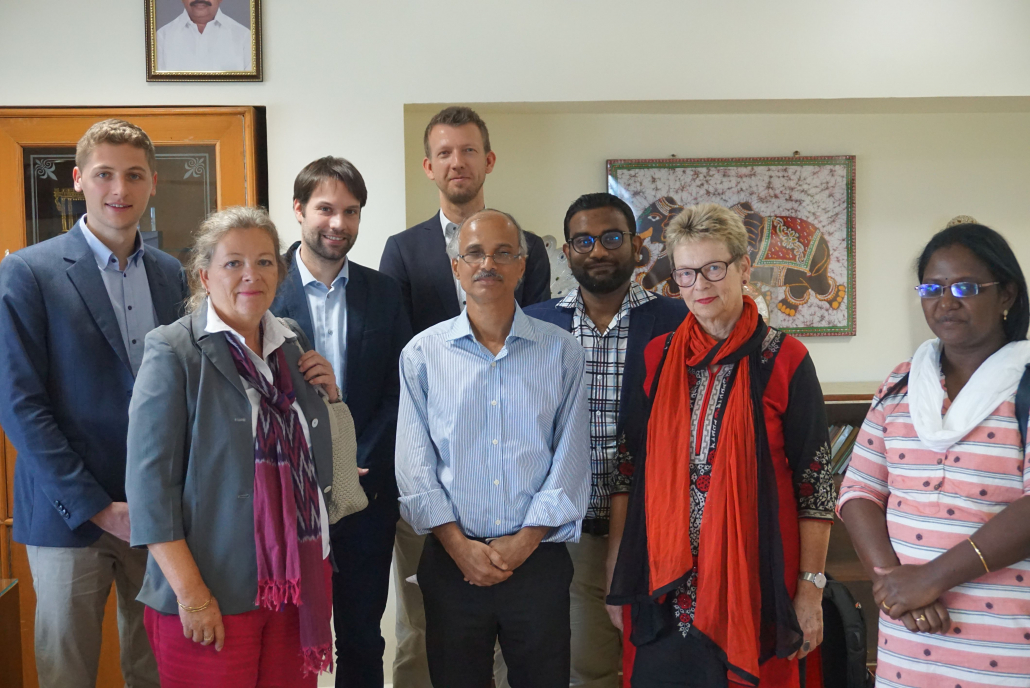
It was agreed on the German and Indian sides that it should not be a competitive advantage for companies and textile factories to bypass human rights and due diligence: "Non-compliance must be more expensive than compliance.”
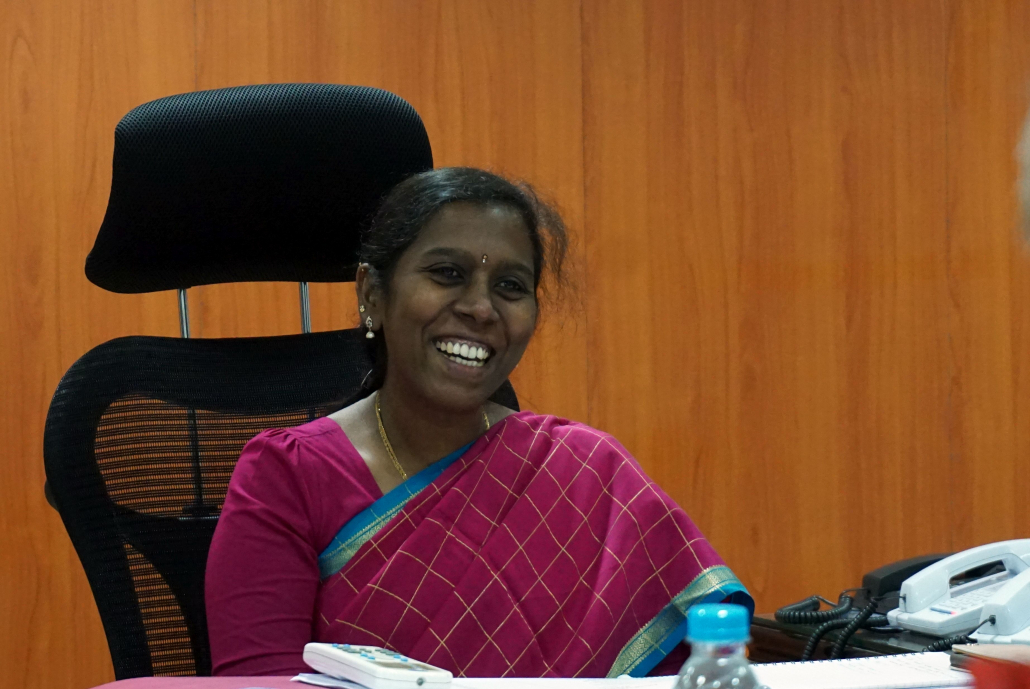
After a meeting with the "Ministry of Handlooms, Handicrafts, Textiles and Khadi Department", the delegation met Tmt S. Madhumathi, Secretary of the "Social Welfare and Nutritious Meal Programme Department". Her department is particularly committed to the protection and development of women and girls in the textile sector, promotes the adequate accommodation of workers in factory accommodation and has, for example, set up a helpline for workers.
Madhumathi showed a strong commitment to change and to find solutions for all these issues. The working conditions are continuously monitored, and violations are punished. The situation has already improved and there are, for example, more Works Committees and women in leading positions. Nevertheless, the priority is to continue to inform workers about their rights and to improve accommodation in the factory's own hostels.
The MSI-TN is the local implementation partner of the Partnership Initiative Tamil Nadu. The team of the MSI-TN welcomed the delegation on the second day of the trip in their office in Tirupur. They presented the work and progress of dialogue formats and factory training.
More than 40 meetings at district/state level have already been held to discuss health and safety and social standards and develop action plans on these topics. In addition, training courses are being held in over 180 factories, where over 15,000 workers have been trained about their rights and internal complaints committees are being set up.
In the afternoon, the delegation visited two spinning mills where the NGO Social Awareness and Voluntary Education (SAVE) provides training and forms and supports Works and Internal Complaints Committees.
The German and international guests had the opportunity to talk directly to a complaints committee about its work and to convince themselves that the women have taken on their role in this committee and are fulfilling their function.
